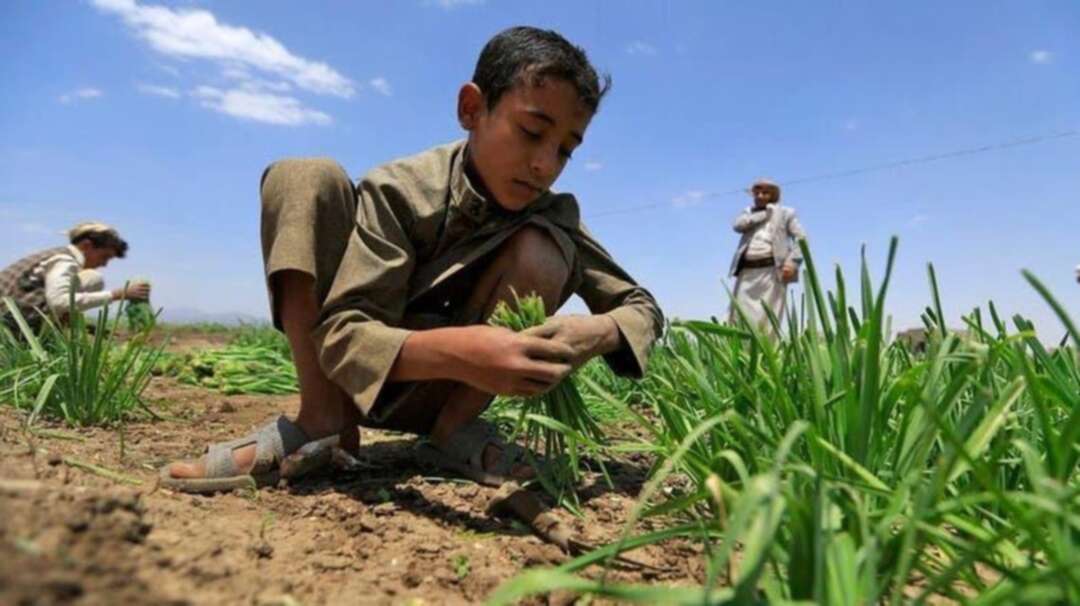-
UK aid charities caution risk of pandemic-induced famine in poorer nations

A coalition of UK aid agencies warned Monday that the COVID-19 pandemic is worsening the “dire humanitarian” crisis in fragile states and raising the risk of famine, including in Yemen.
Parts of Yemen and South Sudan are already on the brink of famine, while Afghanistan and the Democratic Republic of Congo are at risk, driven by the pandemic’s economic impact, the Disasters Emergency Committee (DEC) said in a new report.
The warning came as the United Nations appealed at an online conference Monday for $3.85 billion (4.45 billion euros) to prevent large-scale famine in Yemen.
The DEC report covered also Somalia and Syria, and the plight of Rohingya refugees from Myanmar sheltering in camps in Bangladesh.
“People living in places made perilous by conflict, violence and climate disasters are coping with the coronavirus pandemic as best they can, but the odds are stacked against them,” DEC chief executive Saleh Saeed said.
“The knock-on effects of the pandemic have crippled economies, making the world’s poorest people even poorer,” he added.
“Without continued support, many lives will be lost -- not just from COVID-19 itself, but from the economic impact of the virus.”
The DEC groups together 14 British charities for crisis appeals, including the British Red Cross, Oxfam and Save the Children.
But while it appealed for support from richer donors, Britain’s Conservative government in November said it was cutting roughly £4 billion ($5.6 billion) from its own aid budget amid the pandemic.
Andrew Mitchell, a Conservative former international development secretary, said slashing the UK aid budget in Yemen would “continue the slow, agonizing and obscene process of starving to death” for millions of people.
As this month’s chair of the UN Security Council, Britain “holds the pen” on issues in Yemen and large cuts would be “very serious indeed”, he told BBC radio.
source: AFP
Levant
You May Also Like
Popular Posts
Caricature
BENEFIT Sponsors Gulf Uni...
- April 17, 2025
BENEFIT, the Kingdom’s innovator and leading company in Fintech and electronic financial transactions service, has announced its sponsorship of the “Innovation and Sustainable Technology Solutions Competition (GU - IST Solutions), hosted by Gulf University at its main campus.
This strategic sponsorship reflects BENEFIT’s active role in advancing technological innovation and fostering sustainable solutions to future challenges. It also seeks to empower Bahraini youth by enhancing their skills, capabilities, and competitiveness in innovation and solution development—contributing meaningfully to the broader goals of sustainable development across all sectors.
As part of BENEFIT’s active involvement in the competition, the company has announced that Hanan Abdulla Hasan, Senior Manager of Public Relations and Communication, will serve on the competition’s supervisory committee. Her upcoming participation reflects BENEFIT’s forward-looking commitment to championing academic and professional excellence.
Commenting on the occasion, Hanan Abdulla Hasan, Senior Manager of Public Relations and Communication at BENEFIT, said, “We are privileged to support this pioneering initiative, which aligns seamlessly with BENEFIT’s enduring commitment to fostering innovation and nurturing the potential of Bahrain’s youth. Our participation is rooted in a deep sense of social responsibility and a firm belief in the pivotal role of innovation in shaping a sustainable future. Through such platforms, we seek to empower the next generation with the knowledge, skills, and foresight required to develop impactful solutions that address future challenges, in line with the United Nations Sustainable Development Goals 2030.”
Dr. Aseel Al Ayash Dean of the College of Engineering in Gulf University commented, “We extend our sincere gratitude to BENEFIT for their generous sponsorship and support of the Innovation and Sustainable Technology Solutions Competition. This contribution plays an instrumental role in helping us achieve the strategic goals of this initiative, namely, cultivating a culture of innovation and sustainability, encouraging efforts that address the imperatives of sustainable development, and enhancing the practical and professional capabilities of our students and participants.”
The event will bring together a diverse spectrum of participants, including secondary school students, university undergraduates, engineers, industry professionals, entrepreneurs, academic researchers, and subject matter experts representing a wide range of disciplines.
The competition seeks to inspire participants to develop and present innovative, sustainable technologies aimed at addressing pressing environmental, social, and economic challenges. It encourages the formulation of business models that integrate advanced technological solutions with core principles of sustainability. Moreover, it serves as a platform for emerging leaders, entrepreneurs, and innovators to contribute to the advancement of the Sustainable Development Goals, promote the ethos of responsible technology, and demonstrate its transformative potential across various sectors.
Attendees will have the opportunity to view a series of project presentations submitted by participants, covering diverse areas such as eco-friendly product design, smart and sustainable innovations, renewable energy technologies, water conservation and management, waste minimisation and recycling, green architectural solutions, and sustainable transportation systems. Outstanding projects will be formally recognised and awarded at the conclusion of the event.
opinion
Report
ads
Newsletter
Subscribe to our mailing list to get the new updates!






















